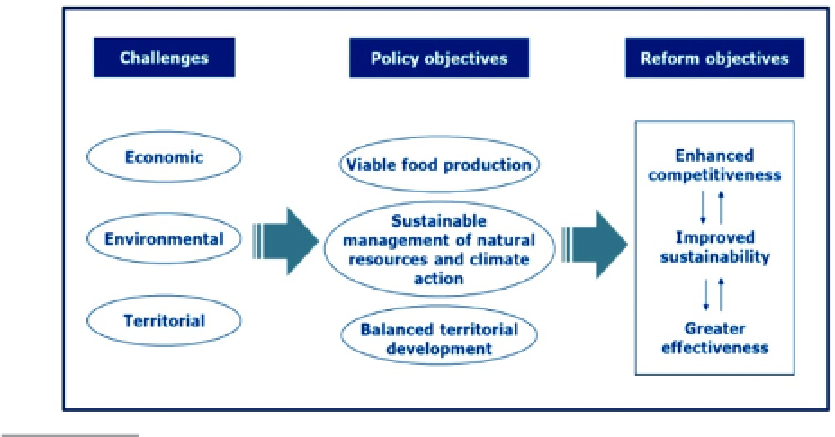Agriculture Reference
In-Depth Information
needs to attain higher levels of production of safe and quality food, while preserving the
natural resources that agricultural productivity depends upon [14]. As shown in Figure 1, in
the current situation economic, environmental and territorial challenges, sustainable use of
the environment, and sustainability development are among the most important objectives.
The above information shows that in the EU common agricultural policy are given high
importance such as sustainability, conservation of natural resources, safe food and quality food
production issues. For these reasons, organic agriculture is to serve the basic objectives of the
CAP. In this context, the development of organic agriculture is one of the important issues.
Therefore, a brief information on the subject is presented below.
Source [14]
Figure 1.
The CAP post-2013: challenges to reform objectives
In recent years, the organic movement has increasingly become a focus of policy interest in
Europe. EU countries support organic farming through agri-environmental programmes and
action plans, among other instruments. These policy interventions aim at both supporting
consumer choice through development of the market for organic food and encouraging the
provision of public goods through support for organic land management [29]. At the EU level,
organic farming as a policy domain is a recent development, and arose when the CAP became
more sensitive to environmental issues. In consequence, the concept of organic farming is now
increasingly shaped by actors outside the organic movement.
The EU Action Plan for Organic Food and Farming was elaborated over a period of five years
from a first formulation of the idea at a European Conference in Vienna 1999 to the final
communication of the Commission in 2004. Organic action plans are widely used in Europe
as a means of integrating different policies that can be used to support organic food and
farming.

